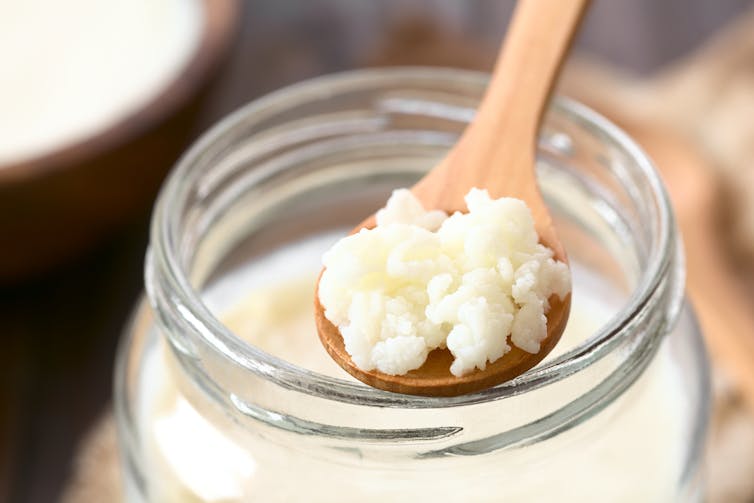
How To Avoid UTIs
10almonds is reader-supported. We may, at no cost to you, receive a portion of sales if you purchase a product through a link in this article.
Psst… A Word To The Wise
Urinary Tract Infections (UTIs) can strike at any age, but they get a lot more common as we get older:
- About 10% of women over 65 have had one
- About 30% of women over 85 have had one
Source: Urinary tract infection in older adults
Note: those figures are almost certainly very underreported, so the real figures are doubtlessly higher. However, we print them here as they’re still indicative of a disproportionate increase in risk over time.
What about men?
Men do get UTIs too, but at a much lower rate. The difference in average urethra length means that women are typically 30x more likely to get a UTI.
However! If a man does get one, then assuming the average longer urethra, it will likely take much more treatment to fix:
Case study: 26-Year-Old Man With Recurrent Urinary Tract Infections
Risk factors you might want to know about
While you may not be able to do much about your age or the length of your urethra, there are some risk factors that can be more useful to know:
Catheterization
You might logically think that having a catheter would be the equivalent of having a really long urethra, thus keeping you safe, but unfortunately, the opposite is true:
Read more: Review of Catheter-Associated Urinary Tract Infections
Untreated menopause
Low estrogen levels can cause vaginal tissue to dry, making it easier for pathogens to grow.
For more information on menopausal HRT, see:
What You Should Have Been Told About Menopause Beforehand
Sexual activity
Most kinds of sexual activity carry a risk of bringing germs very close to the urethra. Without wishing to be too indelicate: anything that’s going there should be clean, so it’s a case for washing your hands/partner(s)/toys etc.
For the latter, beyond soap and water, you might also consider investing in a UV sanitizer box ← This example has a 9” capacity; if you shop around though, be sure to check the size is sufficient!
Kidney stones and other kidney diseases
Anything that impedes the flow of urine can raise the risk of a UTI.
See also: Keeping Your Kidneys Healthy (Especially After 60)
Diabetes
How much you can control this one will obviously depend on which type of diabetes you have, but diabetes of any type is an immunocompromizing condition. If you can, managing it as well as possible will help many aspects of your health, including this one.
More on that:
How To Prevent And Reverse Type 2 Diabetes
Note: In the case of Type 1 Diabetes, the above advice will (alas) not help you to prevent or reverse it. However, reducing/avoiding insulin resistance is even more important in cases of T1D (because if your exogenous insulin stops working, you die), so the advice is good all the same.
How do I know if I have a UTI?
Routine screening isn’t really a thing, since the symptoms are usually quite self-evident. If it hurts/burns when you pee, the most likely reason is a UTI.
Get it checked out; the test is a (non-invasive) urinalysis test. In other words, you’ll give a urine sample and they’ll test that.
Anything else I can do to avoid it?
Yes! We wrote previously about the benefits of cranberry supplementation, which was found even to rival antibiotics:
❝…recommend cranberry ingestion to decrease the incidence of urinary tract infections, particularly in individuals with recurrent urinary tract infections. This would also reduce the [need for] administration of antibiotics❞
Read more: Health Benefits Of Cranberries
Take care!
Don’t Forget…
Did you arrive here from our newsletter? Don’t forget to return to the email to continue learning!
Recommended
Learn to Age Gracefully
Join the 98k+ American women taking control of their health & aging with our 100% free (and fun!) daily emails:
-
Pomegranate vs Cherries – Which is Healthier?
10almonds is reader-supported. We may, at no cost to you, receive a portion of sales if you purchase a product through a link in this article.
Our Verdict
When comparing pomegranate to cherries, we picked the pomegranate.
Why?
In terms of macros, pomegranate is slightly higher in carbs, and/but 4x higher in fiber. That’s already a good start for pomegranates. Lest we be accused of cherry-picking, though, we’ll mention that pomegranate is also slightly higher in protein and fat, for what it’s worth—which is not a lot. As with most fruits, the protein and fat numbers are low importance next to the carb:fiber ratio.
When it comes to vitamins, pomegranate has more of vitamins B1, B2, B5, B6, B9. E. K, and choline. On the other hand, cherries have more of vitamins A and B3. The two fruits are equal in vitamin C. This all makes for a clear win for pomegranate.
In the category of minerals, pomegranate boasts more copper, magnesium, phosphorus, potassium, selenium, and zinc. In contrast, cherries have slightly more calcium. Another win for pomegranate.
Both of these fruits have beneficial polyphenols, each with a slightly different profile, but neither pressingly better than the other.
In short: as ever with healthy foods, enjoy both—diversity is good! But if you’re going to pick on, we recommend the pomegranate.
Want to learn more?
You might like to read:
- Pomegranate Peel’s Potent Potential ← so don’t throw it away!
- Cherries’ Very Healthy Wealth Of Benefits!
Take care!
Share This Post
-
The Worst Way to Wake Up (and What to Do Instead)
10almonds is reader-supported. We may, at no cost to you, receive a portion of sales if you purchase a product through a link in this article.
Not everyone is naturally inclined to be a morning person, but there are things we can do to make things go more easily for our brains!
Cause for alarm?
Dr. Tracey Marks, psychiatrist, explains the impact of our first moments upon awakening, and what that can do to/for us in terms of sleep inertia (i.e. grogginess).
Sleep inertia is worse when waking from deep sleep—and notably, we don’t naturally wake directly from deep sleep unless we are externally aroused (e.g. by an alarm clock).
Dr. Marks suggests the use of more gradual alarms, including those with soft melodies, perhaps birdsong or other similarly gentle things (artificial sunlight alarms are also good), to ease our transition from sleeping to waking. It might take us a few minutes longer to be woken from sleep, but we’re not going to spend the next hour in a bleary-eyed stupor.
For more details on these things and more (including why not to hit “snooze”), enjoy:
Click Here If The Embedded Video Doesn’t Load Automatically!
Want to learn more?
You might also like to read:
Take care!
Share This Post
-
Energize! – by Dr. Michael Breus & Stacey Griffith
10almonds is reader-supported. We may, at no cost to you, receive a portion of sales if you purchase a product through a link in this article.
We previously reviewed another book book by Dr. Breus, The Power Of When. So what’s different in this one?
While the chronotypes featured in The Power Of When also feature here (and sufficient explanation is given to make this a fine stand-alone book), this book has a lot to do with metabolism also. By considering a person’s genetically predisposed metabolic rate to be fast, medium, or slow (per being an ectomorph, mesomorph, or endomorph), and then putting that next to one’s sleep chronotype, we get 12 sub-categories that in this book each get an optimized protocol of sleep, exercise (further divided into: what kind of exercise when), and eating/fasting.
Which, in effect, amounts to a personalized coaching program for optimized energy!
The guidance is based on a combination of actual science plus “if this then that” observation-based principles—of the kind that could be described as science if they had been studied clinically instead of informally. Dr. Breus is a sleep scientist, by the way, and his co-author Stacey Griffith is a fitness coach. So between the two of them, they have sleep and exercise covered, and the fasting content is very reasonable and entirely consistent with current consensus of good practice.
The style is very pop-psychology, and very readable, and has a much more upbeat feel than The Power Of When, which seems to be because of Griffith’s presence as a co-author (most of the book is written from a neutral perspective, and some parts have first-person sections by each of the authors, so the style becomes distinct accordingly).
Bottom line: if you’d like to be more energized but [personal reason why not here] then this book may not fix all your problems, but it’ll almost certainly make a big difference and help you to stop sabotaging things and work with your body rather than against it.
Share This Post
Related Posts
-
Can kimchi really help you lose weight? Hold your pickle. The evidence isn’t looking great
10almonds is reader-supported. We may, at no cost to you, receive a portion of sales if you purchase a product through a link in this article.
Fermented foods have become popular in recent years, partly due to their perceived health benefits.
For instance, there is some evidence eating or drinking fermented foods can improve blood glucose control in people with diabetes. They can lower blood lipid (fats) levels and blood pressure in people with diabetes or obesity. Fermented foods can also improve diarrhoea symptoms.
But can they help you lose weight, as a recent study suggests? Let’s look at the evidence.
Remind me, what are fermented foods?
Fermented foods are ones prepared when microbes (bacteria and/or yeast) ferment (or digest) food components to form new foods. Examples include yoghurt, cheese, kefir, kombucha, wine, beer, sauerkraut and kimchi.
As a result of fermentation, the food becomes acidic, extending its shelf life (food-spoilage microbes are less likely to grow under these conditions). This makes fermentation one of the earliest forms of food processing.
Fermentation also leads to new nutrients being made. Beneficial microbes (probiotics) digest nutrients and components in the food to produce new bioactive components (postbiotics). These postbiotics are thought to contribute to the health benefits of the fermented foods, alongside the health benefits of the bacteria themselves.
What does the evidence say?
A study published last week has provided some preliminary evidence eating kimchi – the popular Korean fermented food – is associated with a lower risk of obesity in some instances. But there were mixed results.
The South Korean study involved 115,726 men and women aged 40-69 who reported how much kimchi they’d eaten over the previous year. The study was funded by the World Institute of Kimchi, which specialises in researching the country’s national dish.
Eating one to three servings of any type of kimchi a day was associated with a lower risk of obesity in men.
Men who ate more than three serves a day of cabbage kimchi (baechu) were less likely to have obesity and abdominal obesity (excess fat deposits around their middle). And women who ate two to three serves a day of baechu were less likely to have obesity and abdominal obesity.
Eating more radish kimchi (kkakdugi) was associated with less abdominal obesity in both men and women.
However, people who ate five or more serves of any type of kimchi weighed more, had a larger waist sizes and were more likely to be obese.
The study had limitations. The authors acknowledged the questionnaire they used may make it difficult to say exactly how much kimchi people actually ate.
The study also relied on people to report past eating habits. This may make it hard for them to accurately recall what they ate.
This study design can also only tell us if something is linked (kimchi and obesity), not if one thing causes another (if kimchi causes weight loss). So it is important to look at experimental studies where researchers make changes to people’s diets then look at the results.
How about evidence from experimental trials?
There have been several experimental studies looking at how much weight people lose after eating various types of fermented foods. Other studies looked at markers or measures of appetite, but not weight loss.
One study showed the stomach of men who drank 1.4 litres of fermented milk during a meal took longer to empty (compared to those who drank the same quantity of whole milk). This is related to feeling fuller for longer, potentially having less appetite for more food.
Another study showed drinking 200 millilitres of kefir (a small glass) reduced participants’ appetite after the meal, but only when the meal contained quickly-digested foods likely to make blood glucose levels rise rapidly. This study did not measure changes in weight.
Kefir, a fermented milk drink, reduced people’s appetite.
Ildi Papp/ShutterstockAnother study looked at Indonesian young women with obesity. Eating tempeh (a fermented soybean product) led to changes in an appetite hormone. But this did not impact their appetite or whether they felt full. Weight was not measured in this study.
A study in South Korea asked people to eat about 70g a day of chungkookjang (fermented soybean). There were improvements in some measures of obesity, including percentage body fat, lean body mass, waist-to-hip ratio and waist circumference in women. However there were no changes in weight for men or women.
A systematic review of all studies that looked at the impact of fermented foods on satiety (feeling full) showed no effect.
What should I do?
The evidence so far is very weak to support or recommend fermented foods for weight loss. These experimental studies have been short in length, and many did not report weight changes.
To date, most of the studies have used different fermented foods, so it is difficult to generalise across them all.
Nevertheless, fermented foods are still useful as part of a healthy, varied and balanced diet, particularly if you enjoy them. They are rich in healthy bacteria, and nutrients.
Are there downsides?
Some fermented foods, such as kimchi and sauerkraut, have added salt. The latest kimchi study said the average amount of kimchi South Koreans eat provides about 490mg of salt a day. For an Australian, this would represent about 50% of the suggested dietary target for optimal health.
Eating too much salt increases your risk of high blood pressure, heart disease and stroke.
Evangeline Mantzioris, Program Director of Nutrition and Food Sciences, Accredited Practising Dietitian, University of South Australia
This article is republished from The Conversation under a Creative Commons license. Read the original article.
Don’t Forget…
Did you arrive here from our newsletter? Don’t forget to return to the email to continue learning!
Learn to Age Gracefully
Join the 98k+ American women taking control of their health & aging with our 100% free (and fun!) daily emails:
-
80-Year-Olds Share Their Biggest Regrets
10almonds is reader-supported. We may, at no cost to you, receive a portion of sales if you purchase a product through a link in this article.
Notwithstanding the title, some of these people are a little younger than 80, but this adds to the interest a little as we see the different regrets / learned wisdoms at different stages of later life!
If we could turn back the time…
There are dozens of life regrets / wishes / retroactive advices shared in this video; here are some highlights:
- “My regret was I had a dysfunctional family and I wish I would have learned not to take responsibility.”
- “In my 30s, when I started drinking very heavily, I wish I hadn’t done that because it escalated to drug abuse.”
- “When my parents were old ages, I was working very hard… I didn’t have time to take care of them, not even spend the time with them. That’s my biggest regret.”
- “Live life to the fullest because none of us have any assurance on how old we’re going to be when we’re going to die.”
- “If I could do it over, I would have called home more and realized what my brother was going through.”
- “Spent a lot of years being concerned about what other people thought of me.”
- “You got to be careful what you say to your children because it means a lot.”
For the rest, enjoy:
Click Here If The Embedded Video Doesn’t Load Automatically!
Want to learn more?
You might also like to read:
- Managing Your Mortality Without Regrets
- How To Avoid Carer Burnout (Without Dropping Care)
- Managing Sibling Relationships In Adult Life
- Family Estrangment & How To Fix It
Take care!
Don’t Forget…
Did you arrive here from our newsletter? Don’t forget to return to the email to continue learning!
Learn to Age Gracefully
Join the 98k+ American women taking control of their health & aging with our 100% free (and fun!) daily emails:
-
Coughing/Wheezing After Dinner?
10almonds is reader-supported. We may, at no cost to you, receive a portion of sales if you purchase a product through a link in this article.
The After-Dinner Activities You Don’t Want
A quick note first: our usual medical/legal disclaimer applies here, and we are not here to diagnose you or treat you; we are not doctors, let alone your doctors. Do see yours if you have any reason to believe there may be cause for concern.
Coughing and/or wheezing after eating is more common the younger or older someone is. Lest that seem contradictory: it’s a U-shaped bell-curve.
It can happen at any age and for any of a number of reasons, but there are patterns to the distribution:
Mostly affects younger people:
Allergies, asthma
Young people are less likely to have a body that’s fully adapted to all foods yet, and asthma can be triggered by certain foods (for example sulfites, a common preservative additive):
Adverse reactions to the sulphite additives
Foods/drinks that commonly contain sulfites include soft drinks, wines and beers, and dried fruit
As for the allergies side of things, you probably know the usual list of allergens to watch out for, e.g: dairy, fish, crustaceans, eggs, soy, wheat, nuts.
However, that’s far from an exhaustive list, so it’s good to see an allergist if you suspect it may be an allergic reaction.
Affects young and old people equally:
Again, there’s a dip in the middle where this doesn’t tend to affect younger adults so much, but for young and old people:
Dysphagia (difficulty swallowing)
For children, this can be a case of not having fully got used to eating yet if very small, and when growing, can be a case of “this body is constantly changing and that makes things difficult”.
For older people, this can can come from a variety of reasons, but common culprits include neurological disorders (including stroke and/or dementia), or a change in saliva quality and quantity—a side-effect of many medications:
Hyposalivation in Elderly Patients
(particularly useful in the article above is the table of drugs that are associated with this problem, and the various ways they may affect it)
Managing this may be different depending on what is causing your dysphagia (as it could be anything from antidepressants to cancer), so this is definitely one to see your doctor about. For some pointers, though:
NHS Inform | Dysphagia (swallowing problems)
Affects older people more:
Gastroesophagal reflux disease (GERD)
This is a kind of acid reflux, but chronic, and often with a slightly different set of symptoms.
GERD has no known cure once established, but its symptoms can be managed (or avoided in the first place) by:
- Healthy eating (Mediterranean diet is, as usual, great)
- Weight loss (if and only if obese)
- Avoiding trigger foods
- Eating smaller meals
- Practicing mindful eating
- Staying upright for 3–4 hours after eating
And of course, don’t smoke, and ideally don’t drink alcohol.
You can read more about this (and the different ways it can go from there), here:
NICE | Gastro-oesophageal reflux disease
Note: this above page refers to it as “GORD”, because of the British English spelling of “oesophagus” rather than “esophagus”. It’s the exact same organ and condition, just a different spelling.
Take care!
Don’t Forget…
Did you arrive here from our newsletter? Don’t forget to return to the email to continue learning!
Learn to Age Gracefully
Join the 98k+ American women taking control of their health & aging with our 100% free (and fun!) daily emails:








